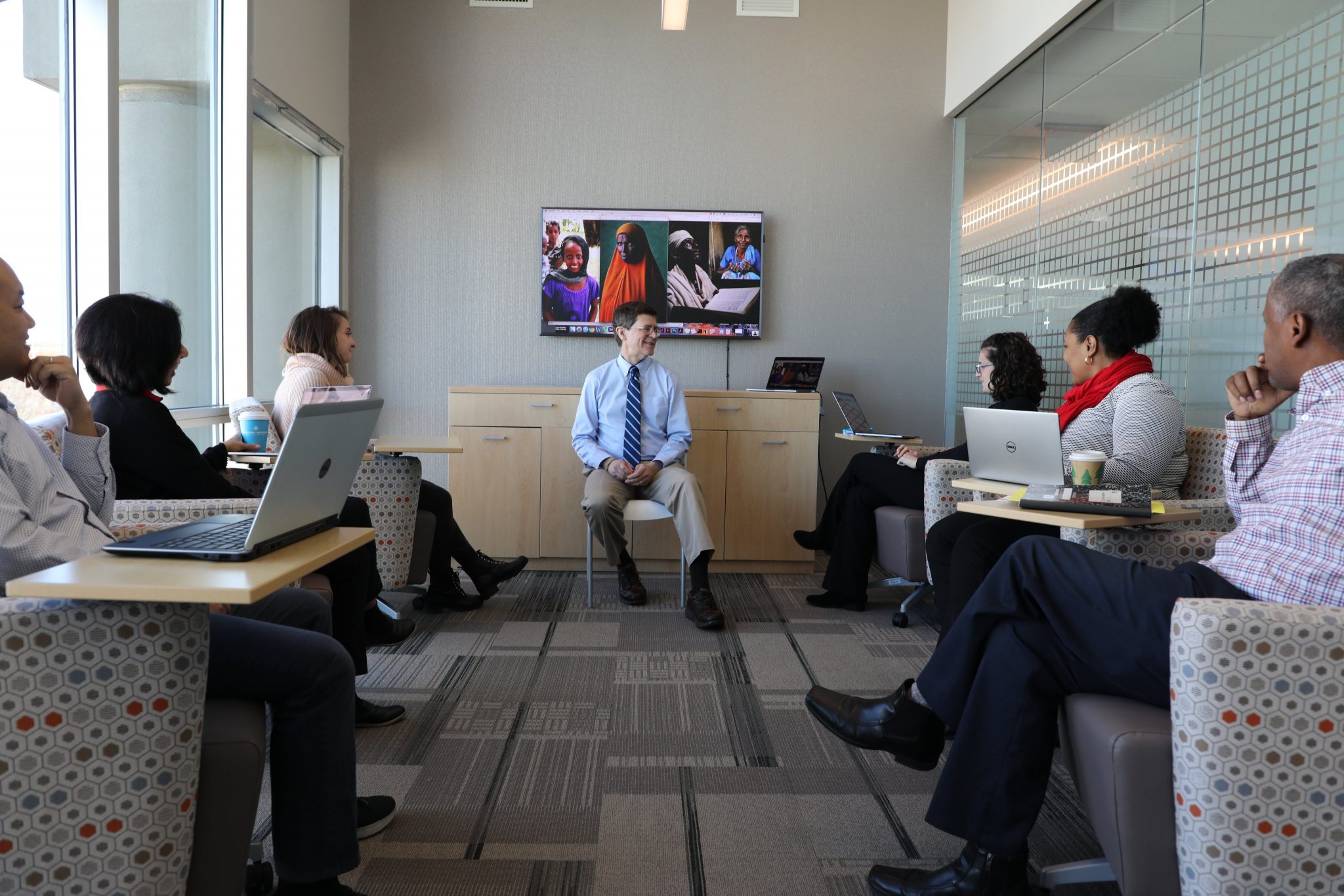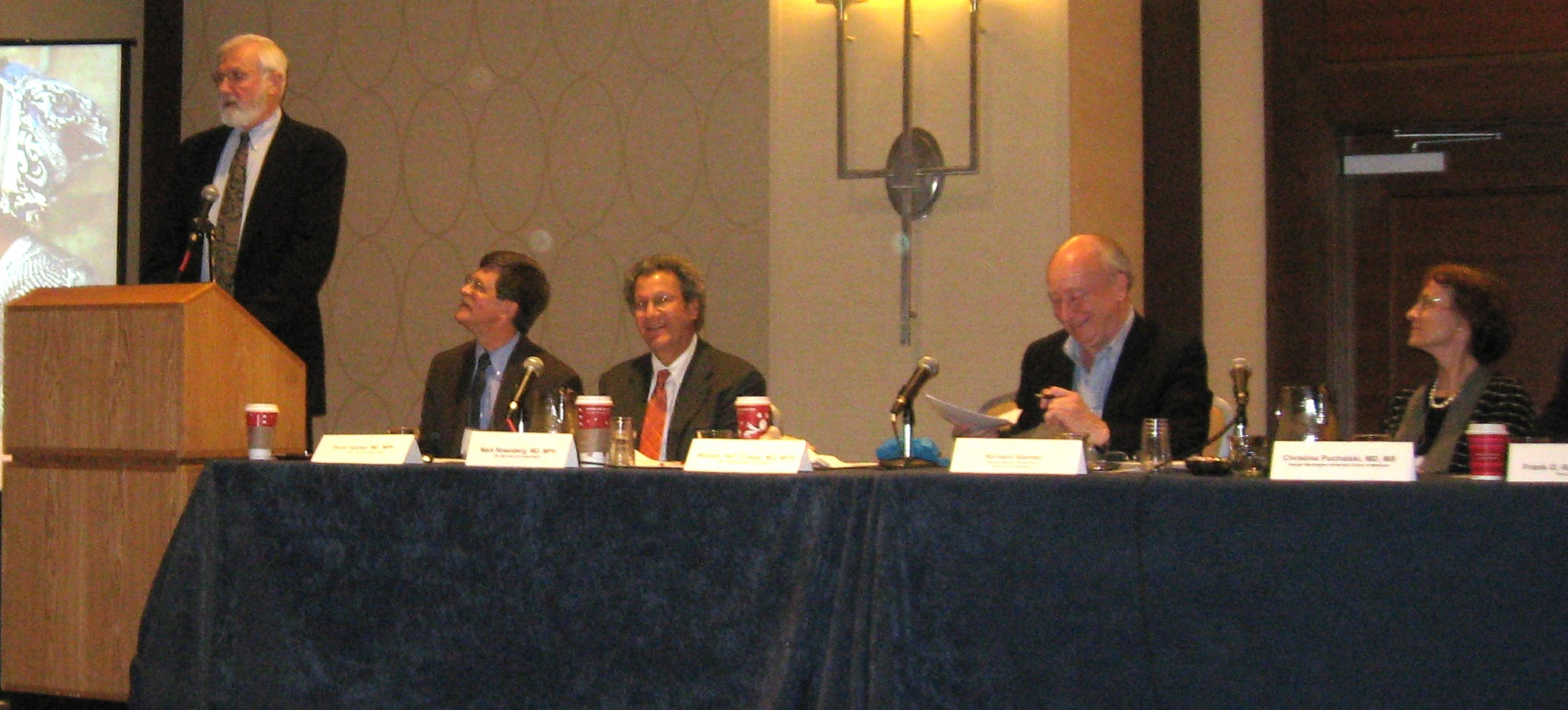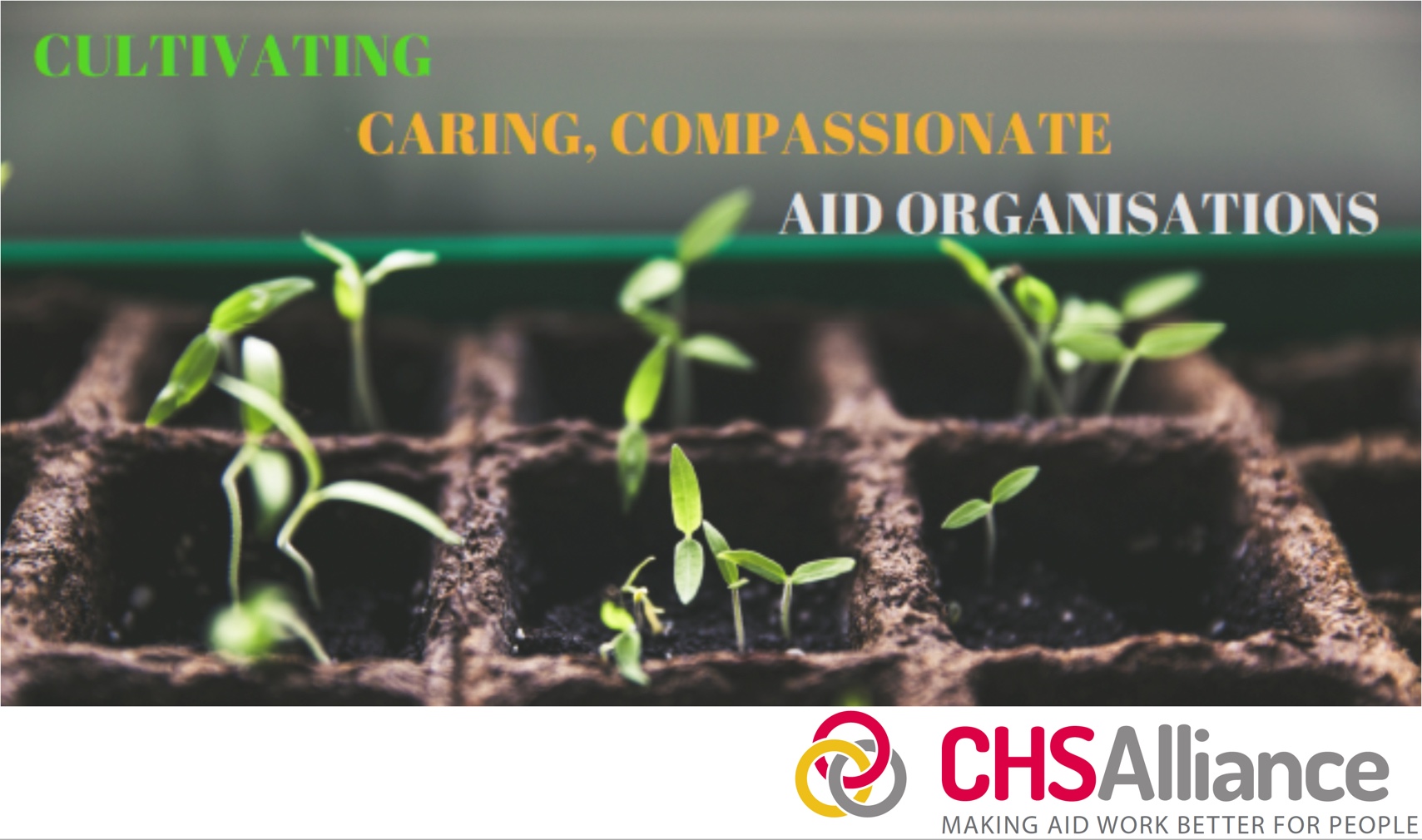Cultivating compassion on World Mental Health Day
We sit down with David to find out what the development, humanitarian and global health sectors can learn from each other to make our workplaces more compassionate.
CHS Alliance focus group discussions have found that aid workers experience high rates of debilitating work-related stress, anxiety, depression, burnout, exhaustion and alcoholism. Have you noticed similar trends in the health sector?
Yes, the field of health care is experiencing epidemic levels of stress, burnout, job turnover, and even suicide. Within the United States alone, an estimated 300-400 physicians commit suicide every year. In the field of global health, which includes large-scale public health programmes, we see similar trends.
We’ve heard that one way to address this problem is by equipping health care organisations to be more compassionate to their staff. Why do you think compassion is so important?
Well, compassion is an important part of the healing process. We all want compassionate care when we are sick and vulnerable. There is now plenty of literature in the public realm that documents how compassion is good for patients, for health care workers, and for health care organisations.
Mature compassion arises from a sense of shared humanity and solidarity. Among health care workers, this kind of compassion actually protects against burnout. It enhances a sense of well-being, purpose, and connection with patients.
Yet, compassionate care cannot be sustained by individuals alone – it must be valued and lived on a daily basis by entire organisations.
Health care organisations must become compassionate systems that recognise and value the central importance of compassion for both patients and staff. Commitment of the entire organisation is needed so that staff can better serve those they ultimately work for – their patients.

Dr. Addiss discusses with colleagues during a compassion in the workplace workshop at The Task Force for Global Health.
Can you tell us why you decided to get involved in this line of work?
Nearly 20 years ago I left my job at the US Centers for Disease Control and Prevention (CDC) for The Fetzer Institute, a foundation that funded research on the psychology and neuroscience of compassion. What struck me then was how infrequently I had heard that word – compassion – in global health. There, we tend to think of ourselves as rational scientists: we base our policies and decisions on data, reason, and objective metrics. Yet in unguarded moments over dinner, when I asked my former CDC colleagues to tell me why they did this work, they invariably grew quiet, visibly softened, and whispered, “care”, “compassion,” or “love.” I became curious. What was it that prevented us from speaking publicly about the very values that we shared, which inspired and motivated all this work?
I got a taste of the change that talking about compassion could bring when we at The Task Force for Global Health organised a symposium on compassion at the annual meeting of the American Society of Tropical Medicine and Hygiene. This is a major scientific conference and we didn’t know if anyone would even attend our session. But once we opened the space for discussion, the lines at the microphones grew longer and longer – eminent scientists sharing their heartfelt stories of what drew them to the field, of the compassion and joy that animated their work.

As you know, the CHS Alliance are initiating a project on cultivating compassion in aid organisations. We found your recent paper, Staff Wellbeing and Sustainable Engagement in Humanitarian Organizations, full of useful examples of best practice and resources. Can you provide a few concrete suggestions that aid organisations could try to increase compassion in their work?
Yes, this was a collaborative effort between The Task Force for Global Health and Heifer International. Myself and the co-authors – Deirdre Guthrie and Leslie Leonard – invited all recipients of the Conrad Hilton Humanitarian Prize, the world’s largest annual humanitarian award, to participate in a survey on stress, burnout and resilience. Deirdre also conducted a series of interviews with CEOs, HR directors, and frontline staff from Hilton Prize-receiving organisations.
Interestingly, the primary factors respondents identified as contributing to burnout were related more to unsupportive working environments than to the intense nature of the work itself.
The interviews highlighted the importance for organisations to develop thoughtful policies that reflect their own values and needs, and that address specific tensions that contribute to stress. Examples interviewees provided include:
- a clear endorsement of self-care by the organisation’s leaders;
- regular communications and trainings on stress and burnout;
- monitoring and ongoing support to detect early warning signs of burnout;
- easy access to psychological and other support when needed.
More generally, we and others in this field have found that a key feature of a high-performing organisation is that conversations about stress and burnout are normalised, and that peer, professional, and organisational support are readily available.
The CHS Alliance works to strengthen quality and accountability in aid, and to put people affected by crisis at the heart of what we do, by implementing the Core Humanitarian Standard (CHS). The CHS addresses staff well-being in aid organisations through Commitment Eight of the CHS.
The actions of staff are the foundation of each of the Nine Commitments of the Core Humanitarian Standard on Quality and Accountability (CHS).
Commitment Eight of the CHS is that communities and people affected by crisis can expect assistance from competent and well-managed staff and volunteers. The Quality Criterion for this is that staff are supported to do their job effectively and are treated fairly and equitably. Organisational Responsibility 8.9 is that policies are in place for the security and well-being of staff.
According to the CHS Guidance Notes and Indicators:
- Staff often work long hours in risky and stressful conditions. An agency’s duty of care to its workers includes actions to promote well-being and avoid long-term exhaustion, burnout, injury or illness.
- Managers must make aid workers aware of the risks and protect them from exposure to unnecessary threats to their physical and emotional health. Measures that can be adopted include effective security management, preventative health advice, active support to work reasonable hours and access to psychological support when required.
- Managers can promote a duty of care through modelling good practice and personally complying with policy. Aid workers also need to take personal responsibility for managing their well-being. Psychosocial support should be immediately available to workers who have experienced or witnessed extremely distressing events.
How does this compare to efforts in the global health sector?
Wow – you in the humanitarian sector are further along than we are in global health at developing sector-wide policies and language to address these issues.
I particularly appreciate how Commitment Eight is framed within an ethic of “duty of care.” We do have a duty to care for ourselves, our colleagues, and our employees, as well as for the people who we are trying to serve.

We at the CHS Alliance are incubating a new initiative, drawing on the guidance in Commitment Eight, to explore how to cultivate caring and compassionate aid organisations. In other words, how can we apply humanitarian values to ourselves and each other as well as the affected populations we serve. The CHS and our work on compassion is valuable for global health organisations too. What are your hopes for the initiative?
What you’re doing at the CHS Alliance is very exciting – and it is so needed! It’s great to see work to implement Commitment Eight of the CHS.
This initiative should also help to weaken the heroic narrative that has become so much a part of both humanitarian and global health work. And of course we are always the heroes in those narratives!
When we accept that humanitarian values apply to all of us, including ourselves, we can drop that heroic narrative and enter into relationships of solidarity and compassion.
It’s amazing how many people are exploring what it means to live compassionately and intentionally as individuals and organisations. But we are often working in isolation. We can learn so much from each other!
Find out how you can get involved with CHS Alliance’s work cultivating compassionate aid organisations.

